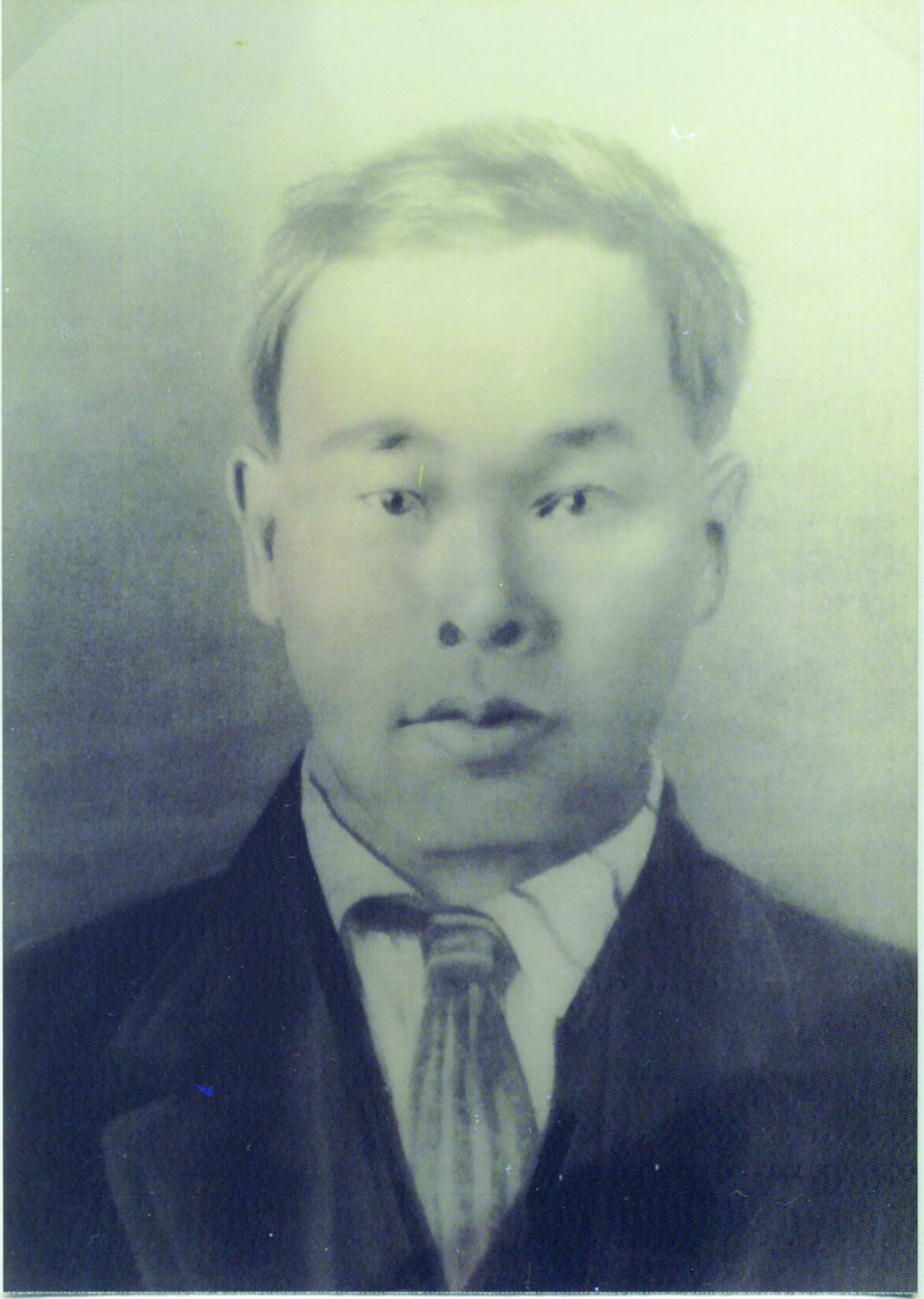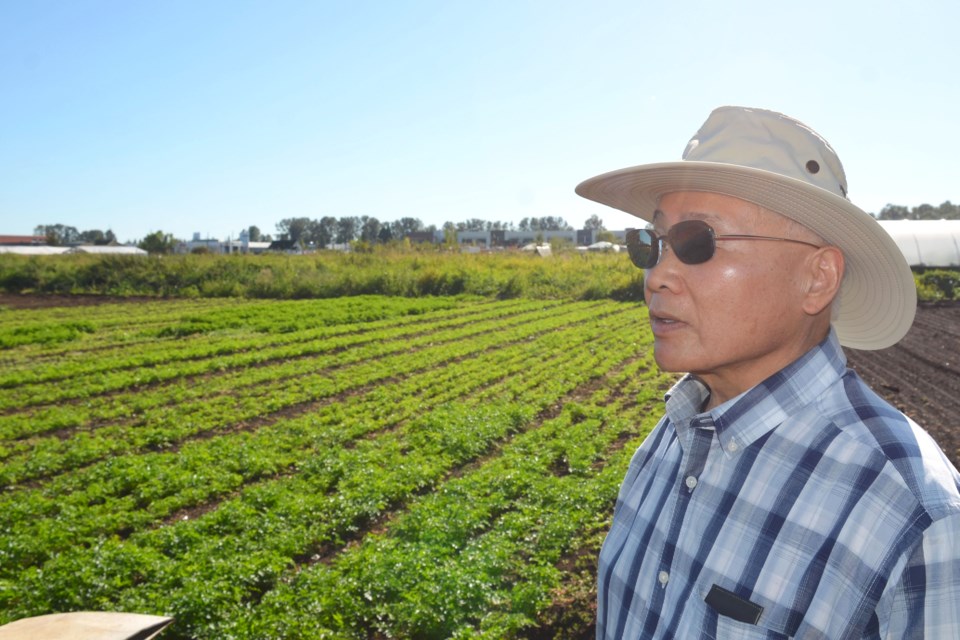This feature is the second of two parts taking a closer look at Burnaby’s Chinese roots. The first part, on the Hong family of Burnaby, can be found at www.burnabynow.com
Ken Yip is firmly rooted in Burnaby where he’s lived all his life. But the family’s journey here has its genesis in British Columbia’s gold rush days with detours to Canton, rural Alberta, India and the jungles of Burma.
Yip grew up on the family farm on Byrne Road, in an area that is now a mixture of farms and warehouses. It seems his grandfather was the seventh son in his family back in the 1870s and, likely lured by gold, headed to Canada.
“If you’re brother number 7, your piece of the (inheritance) pie is probably nil,” says Yip, who is part of a city community advisory committee researching the history of Chinese Canadians in Burnaby for its 125th anniversary.

Yip has found two mine claims in 1880 and 1881 made out to Ben Yip, his grandfather on Wild Horse Creek, northeast of Cranbrook. He says the Chinese miners of the time would move in after the big companies moved out, hoping to find any gold dust left behind.
After that dream died, Yip’s grandfather collected enough gold dust to buy a farm in the area and then bought a business with a partner in downtown Cranbrook where Yip’s father, Doo Tong Yip, also known as George, was born in 1921. Ben Yip, who was 60 at the time of the birth, died in 1924. Yip’s grandmother subsequently sold the business and moved to Vancouver where she raised his father into his teens.
“The experience of the Chinese in smaller towns is way different than in Vancouver or any of the big cities because there’s not that competition for jobs. If you’re in a small town, the Chinese seem to have integrated into the small city fabric (better) than in the big city,” says Yip, whose Chinese name is Yip Kim Wing. “(Vancouver’s European population) were complaining the Chinese were taking away jobs from the white people, but what (the Chinese) were doing was things like laundry and stuff (Europeans) wouldn’t want to do anyway. That’s more racist than anything else.
“There weren’t a whole lot of opportunities, so Grandma decided to move back to China.”
During the Second World War, Yip’s dad figured the Japanese would eventually invade China, so he boarded a ship back to Canada.
“He had papers saying he was born in Canada, but he didn’t have full citizenship at the time, even though he was born in the country,” says Yip.
Canada was more of a comfort zone to him, even with the racism. “There was a sort of reverse discrimination as well (in China). He didn’t show up as Chinese born. He probably felt the same kind of problems there trying to find opportunities.”
He worked for wholesalers in Vancouver, but he also wanted to enlist. The Canadian forces, however, with the odd exception, wouldn’t take Chinese Canadians. But the British Army was recruiting Canadians of “oriental extraction” to work as operatives for its Special Operations Executive, so he signed up. After doing basic training in Wetaskawin, Alta., and final training in India, Yip’s father, a radio operator, was parachuted behind enemy lines into the jungles of Burma in the spring of 1945 as part of a group that included sharpshooters and a demolition expert.
His journey through the jungle is the reason Doo Tong ended up in Burnaby. After returning to Canada, he applied for a veterans land grant. Repeal of the Chinese Exclusion Act in 1947 paved the way for him to acquire the five-acre Byrne Road property, which was then full of chest-high brush. Yip’s father had married when he was in China. His wife, Won Tai, came to Canada in 1948 and Yip was born a year later.
Produce farming was highly competitive, but the Yips managed to sell their produce to big distributors like Kelly Douglas (SuperValu) and Macdonald Consolidated (Safeway). They were also exclusive in-season suppliers to the Woodward’s Food Floors in New Westminster and Guildford.
“You hit the road at six in the morning because you were dropping off at New West, Guildford then Kelly (Douglas) in the afternoon and Macdonalds Consolidated,” says Yip. “The rest of the time you’re working on the farm. There are a million things to do. You’re never finished. But during production time, you’re working. Sometimes I remember mom picking stuff for the morning delivery and they were out in the field with a kerosene lamp on a pole bunching onions or radishes for delivery,” says Yip.
He attended Riverside Elementary on Meadow Drive, which closed in 1982, before going to Macpherson Junior High and Burnaby South Senior High.
“I made some good lifelong friends at school. I was fortunate, I didn’t experience a whole lot of racism,” says Yip. “The biggest culture shock, if you want to call it that, was going from a little four-room school to Macpherson. That was daunting.
“It didn’t take too long, maybe about a year or so. It started to feel much more comfortable then. I took up band as well; that helped. Most of the friends I still keep in touch with were in the band.”
Yip says friends who grew up in Vancouver’s Chinatown experienced more racism than he did when they ventured outside of their closed community.
“They tended to be a little more insular because there was a very established Chinatown.”
When he headed to UBC he joined the Chinese Students Association, but its membership was almost entirely made up of students from Hong Kong.
“They kind of looked down on you because you were Canadian born,” says Yip, who admitted he couldn’t keep up with them language-wise. “In the end, they weren’t quite welcoming.
“There was always a stigma, if you want to call it that, for Chinese born outside of the country.”
Yip got an electrical engineering degree from UBC in 1972 and a medical bioengineering diploma from BCIT, which landed him a job maintaining equipment at Burnaby, Richmond and Mount Saint Joseph hospitals. He moved to Vancouver General Hospital in 1981, retiring in 2007.
He and his younger brother, Raymond, still own the land but lease it to a farmer in the area.
It bothers Yip to see Chinese move to Canada and not realize who paved the way for their arrival.
“The new immigrants, they can come here, and they have much more of an entitlement expectation,” says Yip. “They don’t know the history of the struggle the pioneering Chinese community went through to make it possible.
“When you come here, you assume that’s the way it’s been forever. But it wasn’t until 1947 that that happened. Any time before that, they don’t have an appreciation of the history that went on.”
EXPLORING ROOTS
Registration for the Chinese-Canadian Stories on Oct. 4 is already full. Another in the series, All Our Father’s Relations, also has a Chinese theme to it. It will be held at James Cowan Theatre, 6450 Deer Lake Ave., Thursday, Oct. 12, 7 to 9 p.m. Registration can be done online at www.bpl.bc.ca/events/all-our-fathers-relations or by calling 604-436-5400.



